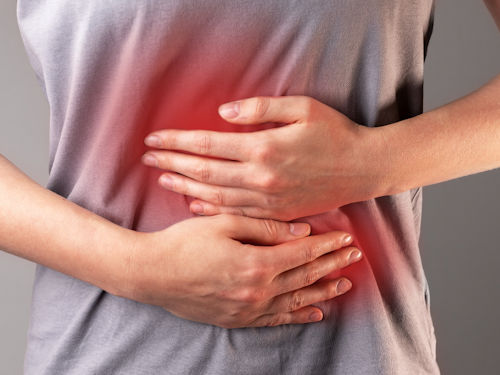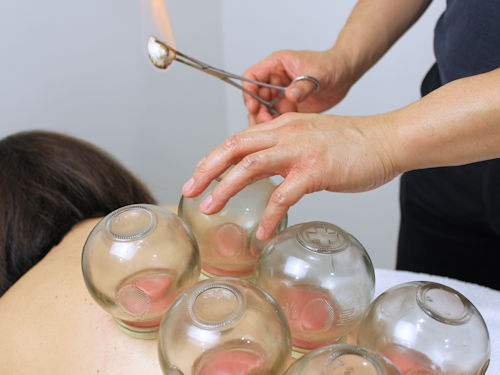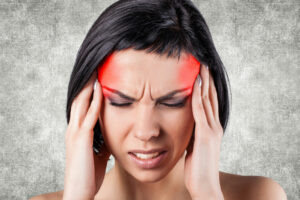Quick Summary
Stress, a common response to change, can be both beneficial (‘good stress’) and harmful (‘bad stress’). Good stress, or eustress, boosts energy and efficiency, enhancing stamina, strength, and focus. Conversely, bad stress, or distress, leads to anxiety, underperformance, and various physical problems, including heart disease, digestive issues, and weakened immune systems. Chronic stress, if unmanaged, can result in severe health issues, including cardiovascular diseases, autoimmune disorders, and mental health problems. Managing stress effectively involves lifestyle adjustments such as balanced diets, regular exercise, sufficient sleep, and stress-relief activities like yoga, meditation, and acupuncture. Acupuncture, particularly, helps regulate the body’s stress response by stimulating endorphin release, which promotes relaxation and energy restoration. Regular engagement in stress-management practices can significantly improve overall well-being.
Destress with Acupuncture
What is stress?
Stress is the body’s reaction to change that involves an adjustment or response. The body can react to these changes with physical, mental, or emotional responses. Facing stress is part of life. It triggers off the ‘fight or flight’ response which forces the body to act either way.
Good Stress
Not all stresses are harmful or hurt us. Small amounts of stress can be helpful, such as finishing work tasks by a specific date. It is useful as it possibly can lead to increased energy and efficiency. Additionally, some types of stress can be fun and exciting.
These types of stressors are ‘good stress’ or ‘eustress’ and:
- increase our stamina and strength
- sharpen our thinking and improve mental focus
Bad Stress
When stresses build up in quantity and quality, it becomes difficult to manage and can have detrimental effects on the body. The more complicated a situation, the higher the stress we experience. It is essential to avoid these types of concentrated stresses.
These types of stresses are termed ‘bad stress’ or ‘distress’ because they cause:
- lack of motivation and underperformance
- anxiety or a feeling of displeasure
- various physical problems
Everyone experiences stress differently. A task that may seem mildly challenging and stimulating for one may prove troublesome and dramatic for another. If you regularly find yourself feeling exhausted or overwhelmed, action needs to be taken to bring the nervous system back to balance.
What Causes Stress?
Stress levels and triggers will vary based on the individual and how they react to situations. Some individuals see stressors as minor while another person may worry themselves sick thinking about it.
It is essential to be aware of the different types of stressors that may occur. These may come from traumatic events to minors tasks in daily activities.

The different types of stressors may include:
Work
- Overworking
- Harassment within the workplace
- Studies
- Exams
Life
- Financial stress
- A death in the family
- Traumatic accidents
- Parenting
- Natural disasters
- Loss of job
Emotional
- Anxiety
- Anger management
- Depression
- Fear
- Worry
What Does Stress Do To My Body?
It is fascinating how one phenomenon can cause the development of so many different health complaints. What is understood so far:
- When stress (real or imagined) is first perceived, it acts at the level of the brain.
- In the brain, the hypothalamus (responsible for perceiving stressors):
- Activates the Autonomic Nervous System
- Stimulates the production of Corticotrophin Releasing Hormone and Anti-Diuretic Hormone
The Autonomic Nervous System consists of sympathetic (arousal) and parasympathetic (relaxed) nervous systems. Collectively, the Autonomic Nervous System regulates circulation, digestion, respiration, temperature control and some vital organs.
The Sympathetic Nervous System accounts for the fight-or-flight response. When stimulated by a stressor, adrenaline and similar hormones are produced which may:
- increase heart rate
- increase blood flow to working muscles
- decrease blood flow to non-working muscles
- dilate the eyes to allow more light in
- open up the airways to allow for increased breathing rate and volume
- reduced digestive function
The Parasympathetic Nervous System is opposite in effect to the Sympathetic Nervous System and is responsible for the conservation of energy and relaxation/digestion.
Stress Hormones
Corticotrophin-releasing hormone and anti-diuretic hormone act on various glands in the brain to produce Adrenocorticotropin Hormone. Adrenocorticotropin hormone stimulates the adrenal glands (small glands on top of the kidneys) to produce Corticoids. The effect of corticoids is to:
- release energy to cope with the ill effects of the stressor
- increased urea production
- appetite suppression
- suppression of the immune system
- irritation of the digestive system
- creates an associated feeling of depression
These are generally symptoms observed of people under stress.
Of course, there are variations to this which can be quite the opposite: these effects are as a result of differences such as age, gender, personality, physical and mental health.
What Will Happen If Stress Is Left Untreated?

If left unattended, over time stress is the building block to more significant health issues. Acute stressors may be more intense and shocking. Symptoms that you may experience during acute stressful periods are headaches, fatigue, insomnia and nervousness/irritability.
However, the effects of chronic stress are much more harmful. Chronic stress is more dangerous because it has a cumulative impact on the body for a prolonged period.
Stress has potent effects on the following:
-
Immune System
Stress reduces the immune system’s function of fending off bacteria and viruses, making you vulnerable to catching other people’s diseases such as the common cold.
This can lead to additional stress as you may need to take sick days at work and may not be able to complete typical day to day activities such as housework.
-
Auto-Immune Diseases
The development of auto-immune diseases such as psoriasis, rheumatoid arthritis and lupus is believed to be multi-factored: genetic, environmental, hormonal and immunologic factors are all believed to be related. Interestingly, in scientific studies up to 80% of patients reported extreme emotional stress before the onset of auto-immune disease.
-
Cardiovascular System
Stress has a strong effect on those who are predisposed to heart conditions. It elevates blood pressure along with heart rate and cholesterol levels. If this leads to long-term, ongoing stress, there will be an increase in the risk of high blood pressure, heart attacks or a stroke.
-
Gastrointestinal Complications
Prolonged stress upsets the digestive system, especially the stomach. Have you ever heard someone complain about not wanting to eat anymore after an argument or when feeling upset? On the other hand, others may tend to over-eat, especially comforting food such as chocolate! Whether overeating or not eating, both will affect the digestive system. Some symptoms you may experience as a result of stress are stomach ulcers, indigestion, irritable bowel syndrome, bloating, constipation or diarrhea.
Excessive stress can also affect the activity of insulin; this can lead to diabetes.
-
Mental Health Problems
Emotional symptoms are what many people think about when it comes to the word ‘stress’. Mental health issues may include depression, anxiety, and personality disorders. There are associated behavioural issues that also linked to stress such as smoking which may lead to other health complaints still.
-
Menstruation And Fertility
Stress is well understood to affect sex hormones. When it comes to women, this can lead to abnormalities in menstruation, making the period irregular or causing further unwanted health complaints such as blood clots and pain.
When it comes to men, chronic stress has been shown to decrease testosterone (male hormones) to the degree of sperm quality and quantity are affected.
Did you know? Stress has been shown to decrease fertility rates by 50%.
-
Skin & Hair
Chronic stress can lead to skin and hair problems such as acne, psoriasis, eczema, and permanent hair loss.
Stop Stress In Its Tracks
When you feel that stress is coming on or you have already found yourself caught up in the act, there are many ways you can decrease stress levels and find peace of mind.
Various tools can be used at home to reduce stress, such as:

-
Music
Music may help soothe the mind and change your mood.
-
Breathe
One of the most important things you can do when feeling stressed is to take deep, slow breaths. Since stress affects our breathing, we tend to lack the oxygen circulating in our body. Breathing will help oxygenate the mind leading to a clearer head.
-
Smell
Lavender and many other essential oils have properties that help calm the body and de-stress the mind. Flowers can also be useful.
What Can Help Manage Stress?
Managing stress takes a bit of will power and routine. Simple habits that are practised daily can significantly help reduce the stress build up, leaving you feeling happier and healthier than before. It does not matter what you choose to do – if you can take some time throughout the day to attend to one of these activities you may find yourself to be happier and less stressed.
Stress is not always bad. Some people thrive on stress and use it to get things done. Stress is experienced differently by everyone. Having a different view of an event may be what is needed to change how you feel.
Below are some simple activities that can help you manage your stress:
- Check your diet: a healthy, balanced diet is necessary to keep you mentally and physically fit and prepared to deal with stressors.
- Yoga or Meditation: Meditation and yoga help to relax the mind and body. It also focusses on breathing.
- Exercise: It increases your overall health and your sense of well-being. When participating in physical activity, your body releases ‘feel good’ and ‘mood-boosting’ chemicals called endorphins. Physical activity includes going to the gym, taking the dogs for a walk, riding a bike, running around with younger children etc.
- Acupuncture: is a highly effective treatment to intervene in developed stressful syndromes.
- Herbal Medicine: can be used to both mediate with stressful changes themselves and also deal with symptoms such as anxiety that have emerged as a result of stress.
- Get plenty of sleep: Sleep allows our brains to recharge and our bodies to rest.
- Find a hobby or stress relieving activity: Take a bath, listen to music, play a sport or read a book. Find a relief that is effective for you!
- Have a massage: Massage has long been sought by many stressed out individuals and for a good reason.
- Talk to a supportive friend or counsellor: Get whatever that is on your mind out! Sometimes getting another perspective on a situation can be practical and useful.
Some Powerful, Natural Remedies To Reduce Stress!

Acupuncture
Acupuncture is very relaxing and calming to the body – many people even fall asleep during their treatment! During the acupuncture process, the needles inserted stimulate the autonomic nervous system and the release of endorphins which are the body’s natural “feel good” hormones. Acupuncture regulates metabolism and promotes a calming and relaxing effect.
With stress there is often a feeling of overwhelming exhaustion which may lead to low energy levels. Acupuncture can help by providing support and reenergizing the body.
Some of the places that acupuncture needles are inserted include the hands, shoulder, back of neck and toes.
Chinese Herbal Medicine
Chinese herbal medicine is a healing system which is a part of Traditional Chinese Medicine (TCM). Chinese herbal medicine is typically used in conjunction with acupuncture and massage treatments. Chinese herbs are prescribed to regulate imbalanced energy. During a consultation, our experienced practitioners will be able to prescribe and produce herbal formulations best suited to the individual. Herbs selected to regulate stress syndromes:
- Increase energy
- Boost immune system
- Relax and calm your body
- Improve breathing
- Improve sleep
Cupping
Have you ever noticed when you are feeling stressed, your neck, shoulders and back magically starts to hurt? Everything is connected. Stress can often lead to physical symptoms of pain and discomfort. It is common that a person who is undergoing stress will experience pain in the neck, shoulders, and back.
To remove toxins and allow your blood and energy to flow freely throughout the body, cupping is applied to the surface of the skin. The suction and pressure provided by cupping can also help to loosen muscles, calm the nervous system and reduce blood pressure.
Stress Is A Constant
We are all exposed to many different types of stressors. These may produce various kinds of changes in the body, and we all respond differently.
It is our attitude which determines the level of stress in our lives. It is not an event but the way we interpret information that causes stress. A positive attitude can be promoted by many different lifestyle activities and natural remedies is recommended to manage stress effectively.






